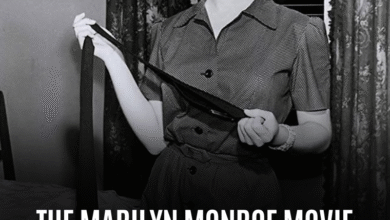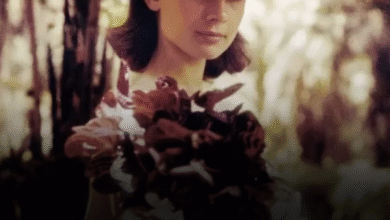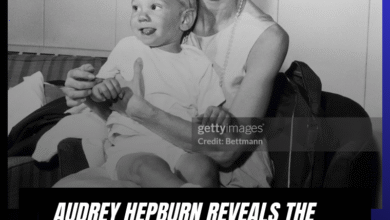JFK, Marilyn Monroe, and the Secrets They Never Told: Inside Their Brief, Intense Relationship
OPINION: This article may contain commentary which reflects the author's opinion.
The relationship between Marilyn Monroe and John F. Kennedy has long been a subject of intrigue, fueling rumors and speculation due to their alleged brief affair and the iconic “Happy Birthday, Mr. President” performance that Monroe gave for JFK’s 45th birthday in 1962. While much of what transpired between them remains speculative, a combination of first-hand accounts and biographical insights provides a glimpse into Monroe’s impressions of the U.S. president. The nature of their connection, brief as it was, speaks volumes about Monroe’s emotional complexity and the public fascination with their interactions.
Historical Context: Alleged Affair and Public Speculation
Monroe and JFK’s rumored romance began circulating after Monroe’s sultry performance at Madison Square Garden on May 19, 1962, where she famously sang “Happy Birthday” to the President. The performance, which became one of the most memorable moments of Monroe’s career, sparked widespread speculation about an affair between the two. This speculation was further fueled by reports of their secret meetings, with the most significant interaction allegedly occurring on March 24, 1962, during a weekend at Bing Crosby’s house in Palm Springs, California.
Biographer Donald Spoto, in Marilyn Monroe: The Biography, recounts that the affair was brief, and Monroe and JFK only met four times between October 1961 and August 1962. According to Spoto and other sources, the affair never developed into a lasting relationship, and their interactions remained largely casual. Despite the media frenzy surrounding their brief entanglement, direct quotes from Monroe about her feelings toward JFK are sparse, leaving much of her emotional response to interpretation.
First-Hand Accounts: Insights from Those Close to Monroe
Several individuals close to Monroe shed light on how she viewed her time with JFK. Ralph Roberts, Monroe’s masseur and close confidant, provided a particularly valuable perspective. In a phone conversation in March 1962, Roberts overheard JFK’s voice and later spoke about Monroe’s impression of their encounter. According to Roberts, Monroe indicated that their “affair” was more of a one-time event rather than an ongoing romance. He noted, “Marilyn told me that this night in March was the only time of her ‘affair’ with JFK. A great many people thought, after that weekend, that there was more to it. But Marilyn gave me the impression that it was not a major event for either of them.” This suggests that, for Monroe, the affair was a brief and casual encounter, lacking the emotional depth that others might have assumed.
Susan Strasberg, a close friend and “surrogate sister” to Monroe, echoed Roberts’ account. In her book Marilyn and Me, Strasberg explained that while Monroe “loved the secrecy and the drama” of being involved with JFK, she did not view him as a long-term partner. “Kennedy was not the kind of man she wanted to spend her life with, and she made that very clear,” Strasberg wrote, suggesting that Monroe had no illusions about a future with the President. For Monroe, the affair was likely more about the thrill and excitement than a genuine emotional connection.
Emotional Complexity and Evolving Impressions
While early accounts paint the affair as a brief and somewhat detached experience for Monroe, later reports suggest that her feelings toward JFK may have grown more complicated. In the months leading up to her death in 1962, Monroe reportedly expressed a sense of betrayal and frustration with the Kennedy family. In one instance, she confided to hairdresser Sydney Guilaroff about “betrayals by ‘men in high places,'” which many speculate referred to both JFK and his brother, Robert Kennedy. This implies that Monroe’s feelings of being used or abandoned might have deepened, contributing to her sense of emotional turmoil in her final days.
An article in Vanity Fair also suggests that Monroe had been expecting to meet with JFK during a forthcoming visit, indicating that she was emotionally invested in the possibility of reconnecting with the President. However, these statements, coupled with Monroe’s growing disillusionment, reflect a complex emotional landscape that might have included both adoration and disappointment.
FBI Reports and Political Engagement
Monroe’s interactions with JFK were not solely personal; some reports indicate that their conversations also touched on political issues. An FBI document dated July 13, 1962, describes a lunch between Monroe and JFK (though some speculate it may have been Robert Kennedy) in which Monroe reportedly discussed atomic testing. Her views were described as “very positively and concisely leftist,” a political engagement that may have influenced her perception of JFK. However, the accuracy of the FBI’s report is questionable, and the extent to which Monroe’s political views affected her personal feelings remains unclear.
The Legacy of Their Relationship: Public Fascination and Media Coverage
Despite the lack of direct quotes from Monroe regarding her impressions of JFK, the media has continually fueled speculation about their relationship. In the years following Monroe’s death, biographers, journalists, and fans alike have attempted to piece together the truth behind their brief affair. While Spoto’s biography downplays the significance of the Kennedy connection, other sources continue to romanticize their interaction, further cementing the idea of a tragic, untold love affair.
In the public’s imagination, Monroe and JFK have become symbols of an era marked by glamour, intrigue, and political power. Their rumored affair remains a topic of fascination, with people constantly searching for clues about what truly transpired between the two icons.
Conclusion: A Brief Encounter, Complex Impressions
Based on available accounts, Marilyn Monroe’s relationship with John F. Kennedy was a brief and largely casual affair, with little evidence to suggest it had the emotional depth many may have assumed. Monroe herself appeared to view the affair with JFK as a fleeting and somewhat superficial experience, despite the thrill and secrecy that surrounded it. However, as her life grew more complicated in the months before her tragic death, it is clear that her impressions of JFK—and the Kennedy family—became tinged with feelings of betrayal and disappointment. Monroe’s legacy, much like her brief relationship with JFK, remains shrouded in mystery, with much of what transpired between them left to speculation and the imagination of those who continue to study her life and career.



